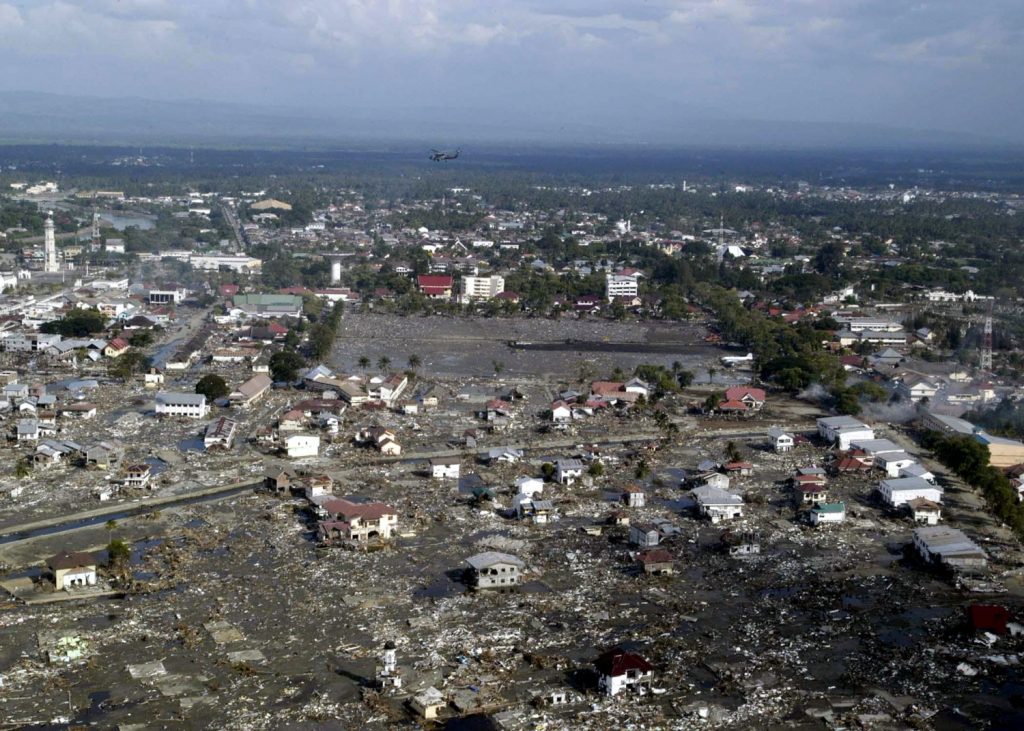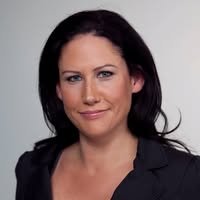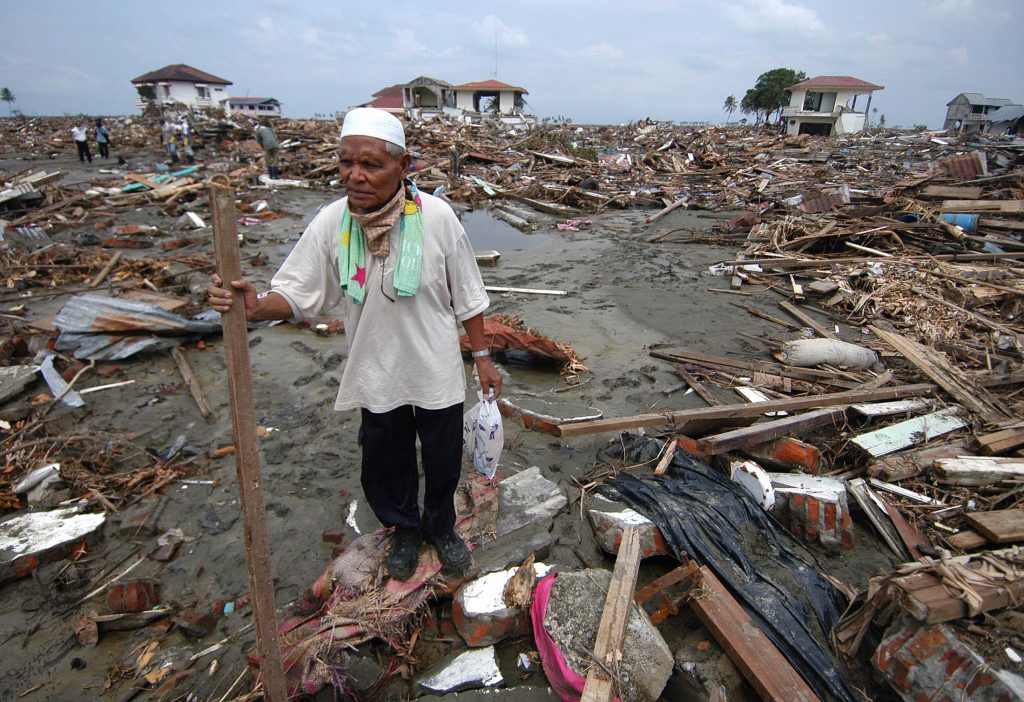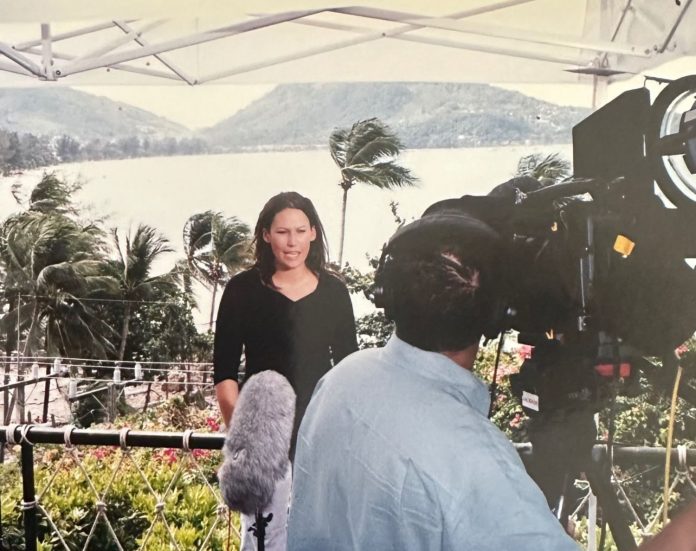On December 26, 2004, a 9.1-magnitude quake struck off the northern tip of Sumatra in Indonesia. The quake caused a tsunami which killed more than 230,000 people across 14 countries and left hundreds of thousands injured. A week after the quake struck, TV1 News reporter and now Mayfield resident Donna-Marie Lever was sent to cover the aftermath, firstly in Thailand and then Banda Aceh, over three weeks. She shared some of her memories with Dellwyn Moylan.
It was 20 years ago, but the memories are still vivid.
‘‘It felt surreal, but I’m also grateful to have been there and it was a privilege to tell such important stories,’’ Lever said, recounting her time covering the aftermath of the disaster.
In Thailand the waves had surged and pushed inland, while in Banda Aceh the tsunami had just ‘‘pancaked’’ everything.
It was her first international assignment as a TV1 News reporter.
‘‘Covering the disaster changed me in many ways. I was 28-yearsold at the time, and as a journalist and a person you simply can’t walk away from that the same. I would hope it taught me compassion and gratitude. I was once told when you are in the heart of a disaster, look for the people helping. You can’t change what has happened, but it reminds you that there are good people out there.’’

One background that appeared in many of Lever’s stories was from the exterior of a collapsed shopping mall that had yet to be checked. They were able to interview residents, as well as Kiwis on the ground working, such as those supplying aid, police and medics.
Some areas the television crew visited hadn’t yet been checked by the rescue crews. One that left a big impact on Lever, was a playground in Banda Aceh. The locals knew children would be under the water.
‘‘We had to leave, with an overwhelming sense of helplessness. I also remember doing a story with a New Zealand police specialist from the Disaster Victim Identification team – his job was brutal but all he wanted was to be there and be helping,’’ she said.
‘‘The importance of telling the stories of those there far outweighed what we were heading to and the uncertainty. Nothing can prepare you for the scenes the cameras don’t quite capture, and the smell. It was overwhelming and almost impossible to describe. It was damp, swamp-like, humid, parts were filled with burning rubble, but ultimately it smelt like death when you were near scenes of mass casualties.’’ There had been many challenges. ‘‘It was problematic getting in and out Banda Aceh, and the region had its own political issues simmering too, so the plan was to essentially backpack in and out and gather as much as we could in 24 to 48 hours,’’ Lever said.

‘‘There were no hotels to stay in and no restaurants open, so we took army ration packs with us,’’ she said.
‘‘Along with my cameraman, we were able to get in, but leaving became a lot harder with full flights as many fled. After 48 hours we still couldn’t leave and the team back home were trying everything to get us on flights out of there. Several days passed and TVNZ had even asked for help from the US, but their air force came and dropped aid parcels from the air without landing, so couldn’t help.’’
After a week on the ground they got a commercial flight out.
‘‘Logistically it was hard, hot and conditions were rough. We were scripting on scraps of paper, had limited food and water,’’ she said.
‘‘There were still aftershocks that rattled the region but you simply push on and get on with the job you are there to do. We also knew it was unlikely we would get to leave as planned and relied heavily on our team back home to get us out safely. An Australian news crew had based themselves out of one of the buildings still standing and the New Zealanders slept on the ground there,’’ Lever said.
As a TV1 News journalist, she has since travelled to other disasters including twice to East Timor to cover the brink of civil war, as well as floods in Australia.





